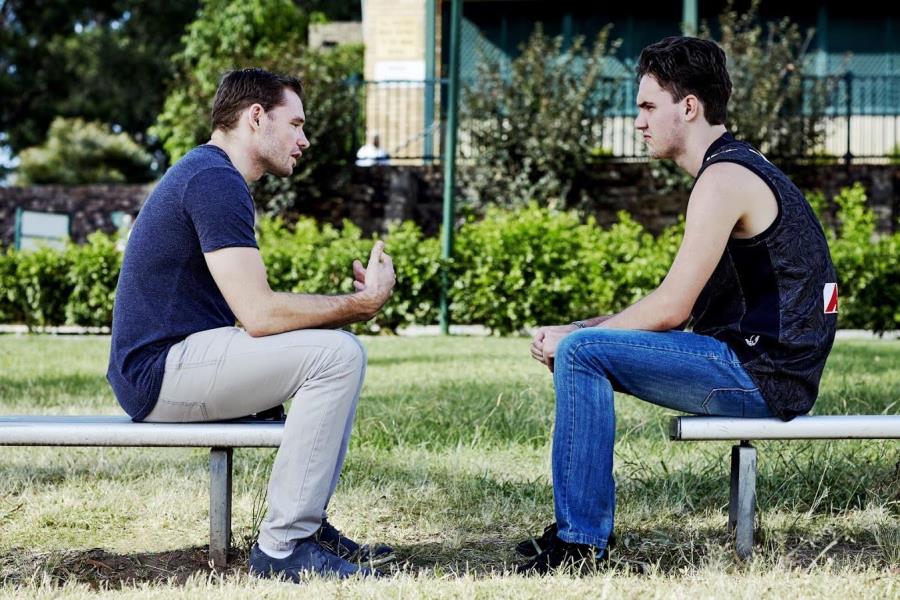Discover the Powerful Steps to Forgive Yourself and Others for a Fulfilling Life
Recognizing the Relevance of Mercy in Recovery Relationships
Mercy is usually watched as a basic act of releasing, yet its value in recovery partnerships expands far beyond plain absolution. It functions as an important device for psychological release, permitting individuals to navigate the intricacies of discomfort and resentment. Understanding the nuanced distinctions in between mercy and reconciliation can illuminate the path towards healthier communications. As we check out the complex advantages of forgiveness, one should think about how these principles can transform not just individual connections yet likewise the more comprehensive social textile. What remains to be revealed is the extensive impact forgiveness can have on individual development and common harmony - The importance of forgiveness.
The Meaning of Mercy
Although mercy is typically perceived as a simple act of allowing go, its definition includes an intricate interaction of emotional and emotional processes. At its core, mercy is the mindful decision to release sensations of resentment or vengeance towards a specific or team that has created injury. This procedure is not simply about discharging the transgressor; instead, it involves an extensive emotional change that can bring about personal growth and recovery.
Forgiveness is multifaceted, typically defined by a person's internal battle to resolve their discomfort with the need for peace. It needs acknowledging the wrongs dedicated, refining the connected emotions, and inevitably making a selection to progress without the problem of animosity. This choice commonly entails a cognitive shift, where one reframes their understanding of the perpetrator and the disobedience, permitting for empathy and understanding to arise.
Notably, forgiveness does not imply condoning the behavior or neglecting the crime; it is an intentional act that focuses on emotional well-being. By defining mercy in this fashion, we can appreciate its function in helping with much healthier relationships and promoting psychological durability, establishing the phase for much deeper expedition right into its advantages.
Emotional Benefits of Mercy
Forgiveness offers substantial emotional advantages that can profoundly influence a person's psychological wellness and overall wellness. When a person selects to forgive, they proactively launch sensations of resentment, temper, and resentment, which can otherwise create a hefty emotional concern. This release typically results in a reduction in stress and anxiety, advertising a sense of tranquility and psychological stability.
Furthermore, forgiveness cultivates an enhanced capacity for empathy and compassion. By understanding the viewpoint of the transgressor, people can cultivate a much deeper emotional durability, which boosts their capacity to deal with future difficulties. This process not only improves emotional regulation but also adds to an extra favorable overview on life.
In addition, forgiving others can enhance one's self-confidence and self-regard. It permits people to recover their individual power, damaging totally free from the unfavorable cycles of victimhood - The importance of forgiveness. This newly found empowerment can bring about healthier psychological actions and stronger interpersonal partnerships
Mercy vs. Settlement
The difference between forgiveness and settlement is vital in understanding the dynamics of recovery relationships. Forgiveness is an interior procedure wherein an individual picks to allow go of animosity and adverse sensations in the direction of someone who has caused damage. It is largely an individual journey, concentrated on emotional release and self-healing, permitting one to progress without bring the concern of past grievances.
On the other hand, settlement involves restoring and recovering the connection to a state of depend on and mutual respect. This procedure commonly calls for open interaction, active engagement from both celebrations, and a commitment to resolving the underlying issues that caused the problem. While forgiveness can take place separately, settlement demands the willingness of both people to engage in discussion and job towards a shared understanding.
It is very important to note that mercy does not constantly cause reconciliation. A person may forgive another without choosing to recover the connection, particularly if count on has actually been irrevocably damaged or find here if the partnership is regarded unhealthy. Recognizing this distinction allows people to browse their feelings successfully and make informed decisions concerning their connections.
Steps to Cultivate Mercy
Growing forgiveness is a deliberate process that involves a number of crucial actions targeted at facilitating emotional recovery. The primary step is acknowledging the pain caused by the infraction. Identifying one's sensations is essential, as it permits people to process their feelings genuinely.
Following, showing on the event and recognizing its impact can give clearness. This representation ought to consist of he said examining the inspirations behind the transgressor's actions and recognizing that every person is imperfect.
The third step includes making a conscious decision to forgive. This decision is crucial, as it signifies a determination to let go of bitterness and move on.
Consequently, expressing sensations in a constructive manner can be useful - The importance of forgiveness. Whether with journaling, chatting with a relied on good friend, or looking for treatment, articulation of emotions can assist in the forgiveness trip
Real-Life Examples of Mercy

In another example, a dense group of pals dealt with a significant rift after one member unintentionally shared a personal secret. Instead of harboring resentment, the influenced good friend chose to forgive, recognizing the value of valuing the relationship over the error. This decision motivated open discussion and inevitably reinforced their link.

Final Thought
Finally, forgiveness plays a crucial role in the recovery of connections by facilitating the release of adverse feelings and cultivating compassion. By comparing mercy and reconciliation, people can take part in a positive process that improves psychological health. Executing steps to cultivate mercy can lead to transformative outcomes, strengthening connections and advertising an encouraging atmosphere. Inevitably, the practice of forgiveness works as a catalyst for personal development and the nurturing of much healthier interpersonal characteristics.
